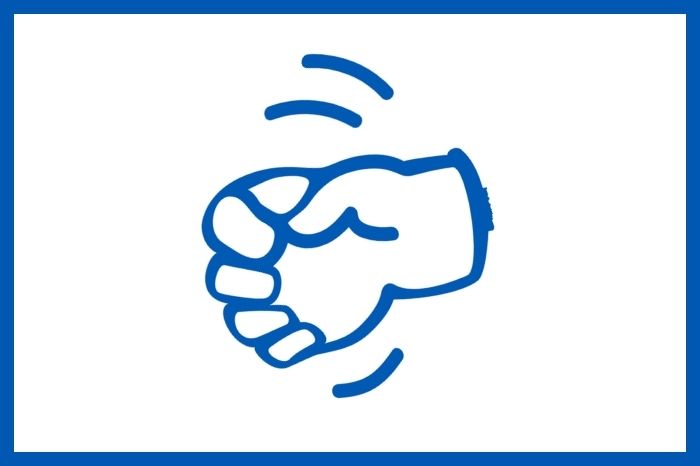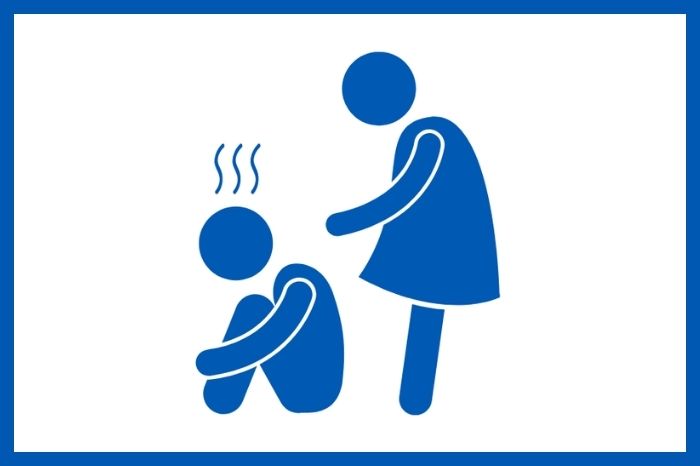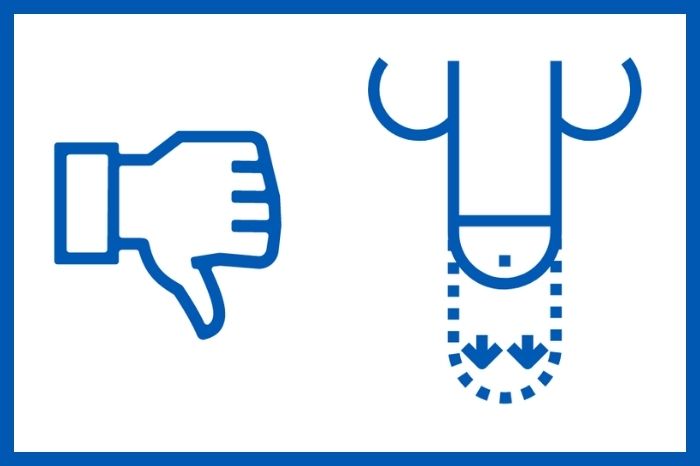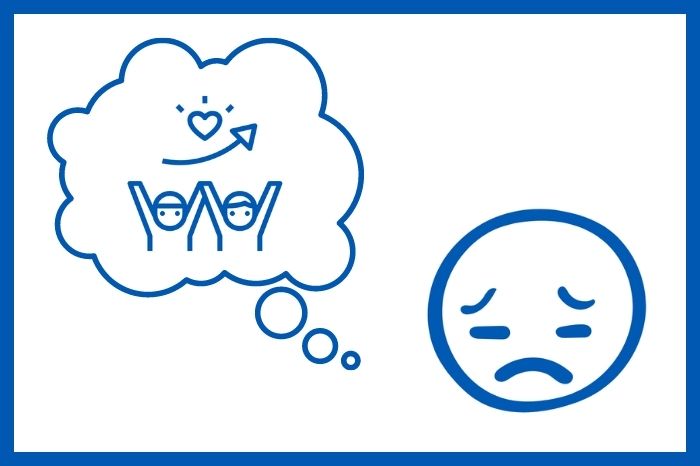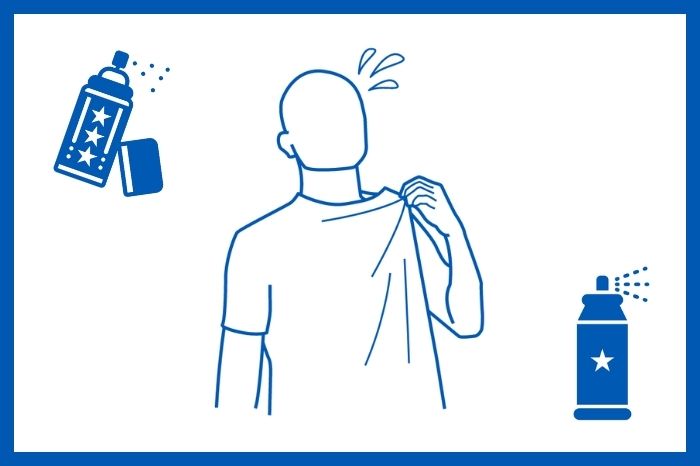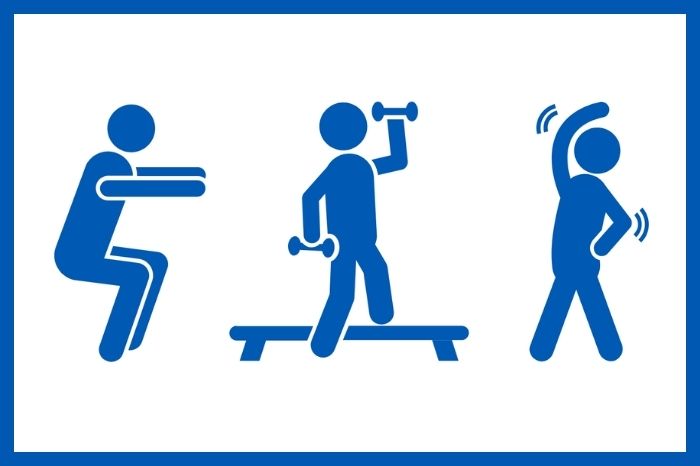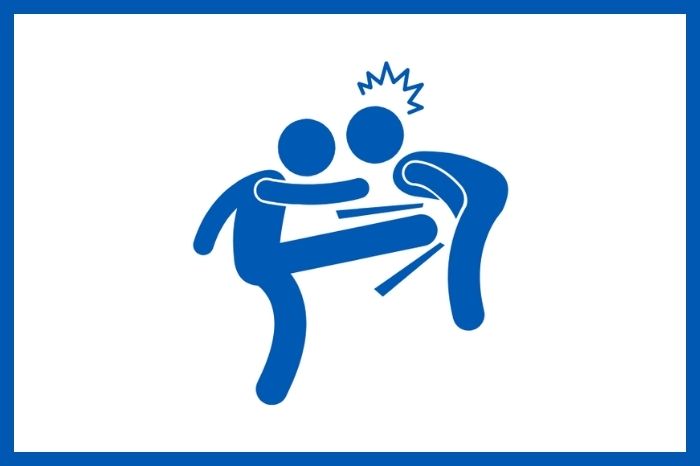How to make friends at maturity - a deeper look at the topic
Men are generally terrible at making friends - at least with other men.
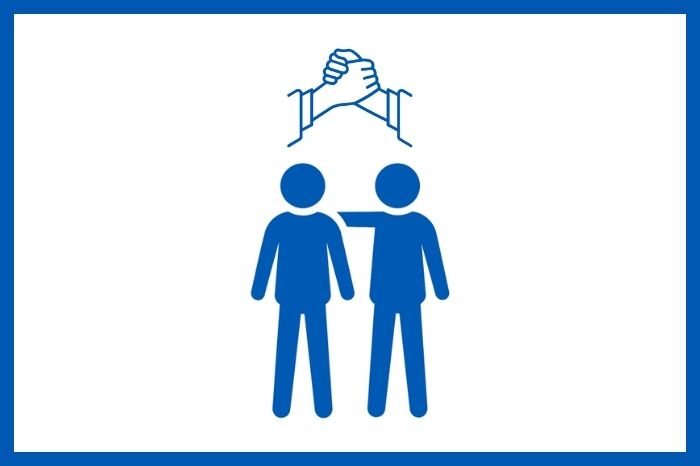
Especially as they get older, men tend to have fewer true male friendships. However, according to research, we crave intimacy in our friendships as much as women do.
Worst of all, this lack of friendships can be really, really bad for us. Prolonged loneliness can have serious consequences for cognition, emotion, behavior and health – and can even accelerate physiological aging.
It's hard to say why men aren't good at making friends with other men. Many are even convinced and say to themselves, "I can't make friends."
Part of this seems to be the way we grow up: As we hit puberty and begin to develop as men, we try to avoid any notion of being "feminine" - which often means trying to look stronger and less vulnerable.
During our adolescence and through the great social experiment we call "high school," we struggled with afflictions like acne, the sudden desire to be noticed by potential love interests, and the frightening realization that we will soon be adults.
Ironically, when we begin our journey to becoming a man, some of us are worried that we may not fully achieve some manly ideal, for example, many of us have been petrified by the thought of being a virgin for the rest of our lives.
During this time, we may also see other men as competitors - probably some primordial vestige of our caveman days, when the only thing that mattered was (A) Am I strong enough to fight you? or (B) Will I get the attractive partner instead of you?
The end of high school and college seems like the prime time for men to make friends with other guys. That's when we start to focus on our interests and find paths into our adult lives.
The activities we choose at this time often become the center of our social spheres. We may not feel comfortable walking up to others and saying "Hey, do you want to be my friend?" like we did in the elementary school playground. But as our common interests become a non-threatening basis for friendship, they allow us to reinforce our value to each other without having to be overtly sentimental.
There has to be an activity where we can contribute our own skills and appreciate/value what the other has to offer. When two men assert each other's usefulness and importance, friendship is almost bound to arise.
But beyond college, as we settle into our lives, it becomes increasingly difficult to make new friends - and maintain existing friendships.
Keeping friends as you get older is the hard part. Life gets in the way. You can hang out from time to time, but just like anything you want to grow, friendship needs to be nurtured and cared for. This is difficult having things to do at home and with kids. Not to mention that if you spend more time with your friend than your wife or girlfriend, then she thinks you are neglecting her.
The increased time demands of our jobs, our spouses, and our children make everything more challenging. Overall, we have more "inertia" in our lives. And where before we had explored other interests and made new connections, it becomes increasingly difficult to fight this inertia and expand our social circles.
This narrowing of our social circles is not all bad. A lot of guys are happy to maintain some strong connections with men they met in high school or college — and they don't feel the need for much more socializing beyond that and their family. Because really what matters is the quality of your friendships, not the number of friends you have.
For some men, there's a sense of starting to really know who they are as they get older - getting clearer about their values and the things they want (and don't want) in life. This translates to having less interest in or tolerance for befriending men who don't share the same ideals. Thus, a friendship can even end in time. Maybe when you and your old friend meet on the street, they'll just say "hi".
But many others feel a loss of connection as they get older, and have a feeling that having more intimate male friendships would be valuable. A major barrier for these men appears to be a lack of practice in "chatting" with another man.
Growing up, most of us are pretty motivated to learn how to approach and talk to women. It is a natural part of becoming an adult male (heterosexual).
For this reason, many find that, in adulthood, they still feel much more comfortable talking to women - even in a platonic situation.
Meeting men to make friends is almost harder than meeting girls (which is hard enough). I can (theoretically) walk up to a girl in a bar or cafe and start talking to her. Maybe ask her out and start a relationship. This is normal. For some reason, in our society, walking up to a guy and doing something similar, with friendship as the only desired goal, seems strange and bizarre to some.
This is a real barrier in our society. But as you explore further, you realize that it's an unnecessary barrier: there are no disastrous consequences when you go to talk to a random man.
Yes, there may be some embarrassment at first. But soon, when he realizes you're not hitting on him or trying to ask for money, the two of you relax and try to enjoy the conversation. Or else, the conversation ends after a while, and the two of you go your separate ways - still with no real consequences. Still, it stops us.
How to make friends after 40, 50 or 60...
If you want to make new male friendships in your life but feel anxious or unsure about how to do it, don't worry, there is hope.
The first step is to overcome your inner criticism. Remember that everyone is insecure and you are always your own worst critic. Even if you think you're being judged when you talk to another guy, he's probably being more critical of himself than he is of you.
We all got nervous, we all got stage fright. Johnny Carson, was an American presenter and comedian who played 4,000 shows with the Tonight Show, and said there wasn't a single episode where he wasn't nervous beforehand. The secret is to recognize your fears and then calmly move through them.
Once you've done that, there are a number of things you can do to increase your chances of making new friends.
But even if you're desperate to make new friends, you need to relax. It's the same as the dating world: if you seem too eager to "close the deal" and get a girlfriend, you'll drive women away. The same goes with making friends.
make friends at work
As mentioned before, work and family play a bigger role in our lives as we age. So why not hug him? You won't connect with every guy you work with on a personal level, but you shouldn't be afraid to hang out with coworkers outside of the professional environment.
The irony of work connections is that you probably spend more (if not more) time with them than you do with your family. You may often find that your colleagues will be willing to embrace the "real you" - and vice versa - more readily than you might think.
Expanding your professional relationship from one sphere to another is often positive, as it can help relieve stress and make you more resilient at work. The only potential downside is if you feel that your friendship might interfere in some way with your professional life.
Of course, it's only natural that since many of our friendships with other guys develop around common interests, this could be an area to explore to help us make new connections with like-minded people.
Do activities that interest you
Much like the way unassuming conversation becomes a path to a genuine relationship, shared activities can become a bridge to true friendships.
Even if two men start out as "soccer buddies" or "drink buddies," there's no reason why a deeper connection can't develop if they both want to.
So think about your interests.
Taking people out of your routine circle, what are you interested in? What inspires you?
languages? Song? Carpentry? Walk? Spirituality? Yoga? cars? Cycling?
Take a class that interests you. Join a club. Go to a new church...
It's almost impossible to have an interest that no one else is interested in. And the best part of this strategy is that it allows you to try to make friends, without doing anything you normally wouldn't want to do.
And when you do an activity you love, you're more likely to be yourself. You're in your environment, you're more relaxed... Doing new activities takes the pressure off worrying about making friends, which makes it more likely to happen naturally.
Engage in social activities
Volunteering is a great way to step outside your normal sphere of friends/work/family and potentially connect with new people.
Many of the people you meet as volunteers are also more likely to connect with strangers: the mere fact that they are dedicating their precious time to helping others shows that they are likely to be more empathetic and less self-centered.
Make friends in your everyday places
Is there a place you go regularly? Somewhere you see the same people often but maybe haven't made a connection? A cafe, your regular bus or subway route, a bar you frequent, even your gym?
It can seem difficult to strike up a conversation with someone when it seems like everyone is busy with their smartphones these days. But you'd be surprised how easy it can be to strike up a conversation with someone in a place like a cafe - especially if it's a person you see often but never say hello to. "Hey, are you the person who always wears those Skullcandy headphones? I think they're really cool..."
The key is to simply make the initial connection, without trying to force a friendship at first. Often, breaking the ice once can lay the groundwork for a real relationship to develop over time.
Bring virtual friendship to the real side
Chances are, you're connected to a lot more people than you realize through your various social media profiles. But maybe up until this point, you've never had substantial interaction with some of these people - they might just be a profile picture and a bio.
But what if you actually decided to meet some of these people in person? Face to face?
It may not always be possible for connections who live on the other side of the country (or the world), but there may be opportunities to find contacts who live within a reasonable distance.
Going on "dates" with a friend who will also bring another friend can be a low-risk way to connect with potential new friendships. For starters, you have a common interest from the start: your mutual friend. So starting a conversation is quite easy. And I've personally found that most of my friends who are good people surround themselves with other good people, so I'm rarely disappointed.
don't be afraid to try
Perhaps the best advice for making friends is: just go out and meet as many people as you can.
In terms of experiencing all the richness that friendship offers, there is no doubt that quality is better than quantity. If you have 12,000 Facebook friends but no one to give you a hug when your girlfriend dumps you, then you need to reevaluate your social life.
But the truth is, we can't exactly plan who our close friends will be. It's a game of chance.
Record companies have the same challenge. They can't plan who their next multi-platinum artist will be. They simply have to cultivate a wide range of bands and hope that one, if they're lucky, makes it big. In the meantime, they hope to lose money on the other 10-15 artists on their list.
We have to have a similar mindset when making friends.
We need to feel comfortable simply making initial connections that may or may not evolve into friendships in the future. Can we predict how often these acquaintances will turn into friends? No. But we also know that without putting ourselves out there to meet new people, we are unlikely to make new friends.
Much of the anxiety men feel when trying to make male friendships seems to be rooted in the notion that the stakes are higher than they really are; that by simply having a conversation, they are making themselves vulnerable and opening up to being judged.
The more comfortable we are in the “uncertain” zone when making contact with another man, the more chances we have of developing true friendships.
A great way to make friends is to offer something of value to a person. A random example would be helping someone with some difficulty in their work, when you have the means to support them, of course. You can arrange to have a coffee to talk better.
The human being is a reciprocal being, that is, we tend to give something in return when we get something, for example, help.
He might return the favor and help you out with something professionally (or personally) too - or maybe not. Regardless, he will appreciate your genuine interest in helping him. And that goodwill can blossom into a deeper connection later on.
Once you've established an initial connection, if it feels like there's mutual "friend chemistry", you shouldn't be afraid to take things to the next level.
The "let's connect over coffee" thing can be a good first step if it's more of a professional connection. Otherwise, having a drink or going to a show—in fact, any kind of activity you both enjoy—may work. When you ask, as long as you're open, honest, and confident about it, the other guy will respect you for inviting him. And the worst thing that can happen is he just says no.
But since so many men recognize that they need more friends, chances are people are more open to dating than you think.
As you can see, once you get over the fear of "going out" and talking to other men, different ways of making connections emerge, which can turn into friends later on.
Conclusion
Ultimately about making friends after you're older, the best way to get comfortable looking for new connections is to practice: doing it indefinitely to build the habit of connecting with people.
Say hello to people (men and women). Involve them. Start a conversation. Take an interest in their lives. You may become friends or maybe never see each other again.
Will everyone want to talk to you? No. But usually it has nothing to do with what they think of you - it's more likely to do with what they think of themselves.

